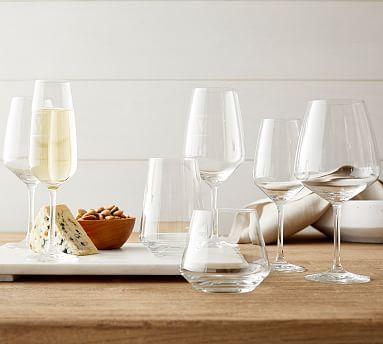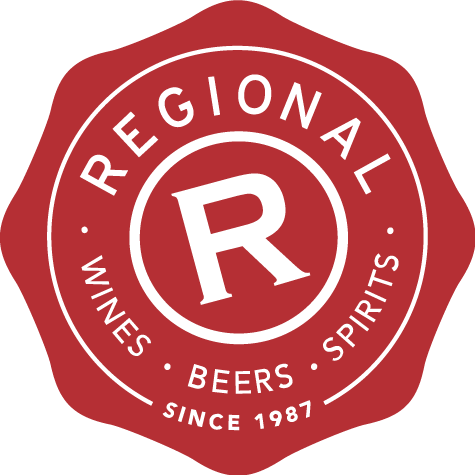
Greatest white wine in world tasting
Riesling is one of the world’s most versatile white grapes and is used to make a hugely diverse range of wine styles from dry as a bone (a growing trend where Riesling is concerned) to deliciously decadent drops, mostly still but also sparkling. Its high acidity is its stock in trade. This gives even very old Rieslings a semblance of freshness, even when decades old. Acidity enables Riesling to age for the long haul, retaining bright, fruit forward flavours in the process. Oak is no friend of Riesling which means the wines made from this great white grape can stand on their own two feet and tend to be lower in cost to produce. Late last month, we held a Riesling tasting, looking at two regions which are renowned for making great wines from this grape. Namely, the Mosel River Valley in Germany and North Canterbury in the South Island of New Zealand.
Here's a snapshot of the two region's stats, facts and grape info...
The Mosel, Germany data
Planted vineyard area: 8078 hectares
Grape varieties: 55% Riesling, 16% Muller-Thurgau, 7% Elbling, 5% Kerner and minor quantities of other grapes.
Soils: shell limestone, marl, dark Devonian slate in the Middle Mosel (which has the highest concentration of great vineyards and wines) and calcareous sandstone on the terraced Mosel.
Average rainfall: 706mm, average annual temperature 10.1 degrees C, average sunshine 1,358. (Climate data from 1961-1990, German Weather Service).
North Canterbury, New Zealand data
Planted vineyard area: 1383 hectares.
Grape varieties: Riesling has traditionally been the most planted grape followed by Pinot Noir but this is changing as Sauvignon Blanc grows in importance.
Soils: Glasnevin Gravels, limestone, windblown loess.
Average rainfall: 200mm in the Waipara Valley, the heart of North Canterbury, but grapes are planted elsewhere and rainfall increases inland. Minimum average annual temperature 9-12 degrees C; maximum 19-21 degrees C.(Climate data from Climate Characteristics of the Waipara Valley wine district, using bioclimatic indices.)
Here are the wines we tried - many of which sold out on the night
Dry Rieslings
Less than 5 grams residual sugar per litre / less than 8/9 in Germany
2015 The Boneline Dry Riesling – library wine unavailable for purchase
RS 4 g/l, 12% ABV, brix 20.5, yield per hectare 2.2 tonnes, soils Glasnevin Gravels
The 2015 vintage will be remembered for low crops, a frosty start and full bodied wines from hot dry weather late in the season. Grapes hand picked, whole bunch pressed to stainless steel and fermented with a neutral yeast strain (DV10) then on lees until bottled late summer.
2014 Weingut Wittman Kirchspiel Riesling GG
This iconic German wine was the outlier of the tasting and comes from a revered vineyard in Germany’s largest wine region, the Rheinhessen, home to 26,281 hectares (approximately the same size as Marlborough, New Zealand, which currently has 26,850 hectares). Residual sugar data was unavailable on this wine which is labelled trocken, which suggests it contains up to 8 grams per litre. 13% ABV. The Wosthofen Kirchspiel Vineyard is 44.2 hectares and its grapes are used by several different producers, the most respected are Wittman, Groebe, Keller and Seehof-Ernst Fauth.
2017 Pegasus Bay Bel Canto
RS 5.2 g/l, 14.5% ABV, brix 25, yield 4.5 tonnes to the hectare
This wine is the product of extended hang time and a portion of noble rot. Free run juice was fermented slowly at cool temperatures to retain fruit characters and varietal purity. Alcoholic fermentation was left to continue until residual sugar of 5 g/l was achieved. Retention of a little of natural carbon dioxide gives spritz character to add liveliness and accentuate freshness.
Off dry Rieslings
5-10 grams residual sugar / litre
2019 The Boneline Dry Riesling
RS 6.8 g/l, 12% ABV, brix 22, soils Glasnevin gravel with varying silt loam (off dry style)
Medium sweet Rieslings
20-40 grams residual sugar / litre
2018 Greystone Riesling
RS 23 g/l, 13% ABV, 24 brix, 5 tonnes/hectare, 8% botrytis
A cool vintage with better quality fruit than the 2017 season. Grapes grown on relatively heavy clays at the base of a hillside. Certified organic wine.
2016 Clemens Busch Marienburg Riesling GG
12% ABV
Importer Andrew Hedley specialises in importing Riesling (which he describes as the greatest wine in the world) from top producers, mostly in Germany but also in Austria and northern Italy. Clemens Busch is named after Clemens and Rita Busch, biodynamic wine producers who own the Marienburg vineyards of Punderich on the Mosel River. This vineyard is grey slate, typical of the Middle Mosel, which has the highest concentration of vineyards in this region.
2019 Terrace Edge Liquid Geography Riesling
RS 28 grams, 12.5% ABV, brix 22.5, yield 5 tonnes
A family owned winery in North Canterbury, which makes two Rieslings each year, both with varying degrees of residual sugar, due to the growing conditions each year and the balance of acidity. This wine is fermented in stainless at cool temperatures to preserve fruit flavours, gently handled to retain some natural spritz. This wine contains 5% botrytis and is certified organic.
2013 Crater Rim Riesling
RS 33.1g/l, 9% ABV, brix 21, yield 8-10 tonnes/ hectare
Grapes grown on Glasnevin Gravels soils, vine age about 6 years old at the time of harvest. Winemaker Haydon Good worked for Clemens Busch in the Mosel, from which he says one of his take home pieces of information for making Riesling was to make picking decision on acidity then balance the wine with residual sugar, depending on the season and the acidity.
Sweet Rieslings
Over 40 grams residual sugar per litre – the sky is the limit
2018 Fritz Haag Brauneberg Juffer Sonnunuhr Spatlese
7.5% ABV, grown on south to south west slopes at elevations of 110 metres to 185 metres with steepness up to 85 %.
Soils grey and blue devonian slate, high percentage of slate and rocks.
Age of vines 30 to 70 years old.
Wilhem Haag was born in 1937 and focussed on quality from the start, becoming a member of the VDP. He has handed the running of this winery over to his son, Oliver Haag in 2005.Wilhem’s other son, Thomas Haag, owns Schloss Lieser and runs it with his family. The cooler, higher altitudes of the Brauneberger Juffer Vineyard, provide consistently high acidity, which gives the wines great longevity. The grapes in this wine were gently pressed and fermented with wild yeasts to preserve fruit purity and freshness.
2016 Schloss Leiser Neiderberg Helden Auslese
RS 95 g/l, 7% ABV, grown on south to south west slopes with elevations of 110 to 190 metres and steepness of up to 80%.
Schloss Leiser is a family owned winery in the village of Leiser on the Mosel River in Germany. This region is famous for its great whites made from Riesling, which is the most planted grape variety in this area and in Germany. The best wines are part of the German Pradikat wine system, a ranking of wine styles with defined criteria of grape ripeness at harvest.
This wine is made from hand harvested grapes grown on the great Niederberg Vineyard, planted on south to south west facing slopes at elevations of 110 to 190 metres and steepness of up to 80%. Soils are blue Devonian slate and a plateau on the top of the hill of Neiderberg provides good water supply. Average vine age is 80 to 100 years old and some vines are ungrafted. The residual sugar in this wine is 95 g/l and, with 7% ABV, this wine is balanced by high acidity, which contributes to its complexity, structure and depth.
Niederberg is one of the Grand Cru vineyards of the Mosel and of Weingut Schloss Lieser. This is a great Riesling made in small quantities and with meticulous hand work from harvesting the grapes to bottling this delicious wine.
All up, Riesling devotees loved these wines and those who used the tasting as a chance to check out the style, quality and taste of some of the world's greatest white wines, both enjoyed this event.
We look forward to bringing you more great tastings of Riesling as well as other great whites and red wines.
* Ask our staff to recommend Rieslings in a wide range of styles to you - we have organised our shelves along the same lines as this tasting; from dry to luscious, so that you can pick from our delicious mix of wines made from this outstanding grape variety.
